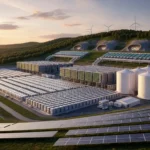Hydrogen fuel cells offer a promising pathway towards a cleaner, more sustainable energy future. These innovative devices generate electricity by combining hydrogen and oxygen in a chemical reaction, producing water and heat as byproducts. Unlike conventional combustion engines, they emit zero greenhouse gases or pollutants, making them an appealing alternative for transportation, electricity generation, and industrial applications. With technological advancements and increasing concerns about climate change and air quality, hydrogen fuel cells have emerged as a critical player in the global transition to renewable energy sources.
How Hydrogen Fuel Cells Work
Hydrogen fuel cells operate on the principle of electrochemical conversion, wherein hydrogen molecules are split into protons and electrons at the anode. The protons migrate through an electrolyte membrane to the cathode while the electrons journey through an external circuit, generating electricity. At the cathode, oxygen molecules from the air combine with the protons and electrons to make water vapor and heat. This highly efficient process produces electricity without combustion, resulting in zero emissions of greenhouse gases or air pollutants.
Applications of Hydrogen Fuel Cells
Hydrogen fuel cells have diverse applications across various sectors, including transport, stationary power generation, and portable electronics. In the transportation sector, fuel cell vehicles (FCVs) offer a clean and efficient alternative to traditional gasoline and diesel vehicles, with the potential to reduce greenhouse gas emissions and decrease reliance on fossil fuels. Additionally, it can be used for stationary power generation in buildings, remote locations, and grid stabilization applications, providing reliable and environmentally friendly electricity. Furthermore, portable fuel cells can power electronic devices such as laptops, smartphones, and drones, offering longer runtime and faster recharging than conventional batteries.
Challenges and Opportunities
Despite their potential, hydrogen fuel cells face several challenges, including high production costs, limited infrastructure, and issues with scalability. The production and distribution of hydrogen require significant investments in infrastructure, including hydrogen production facilities, storage tanks, and refueling stations, which can hinder widespread adoption. Additionally, the current fuel cell technology cost remains relatively high compared to conventional energy sources, limiting its commercial viability. However, ongoing research and development efforts, coupled with government incentives and public-private partnerships, drive advancements in hydrogen production, storage, and distribution, making fuel cells increasingly competitive and accessible.
Conclusion
Hydrogen fuel cells represent a clean, efficient, and versatile energy technology with the potential to transform the way we power our vehicles, homes, and industries. With zero emissions of greenhouse gases or pollutants, hydrogen fuel cells provide a sustainable alternative to fossil fuels, enabling them to mitigate climate change and enhance air quality. While challenges such as cost and infrastructure remain, ongoing innovation and collaboration among stakeholders are driving progress toward a hydrogen-powered future. As investments continue to grow and technological advancements accelerate, hydrogen fuel cells are poised to play a pivotal role in the global change to a low-carbon economy.





